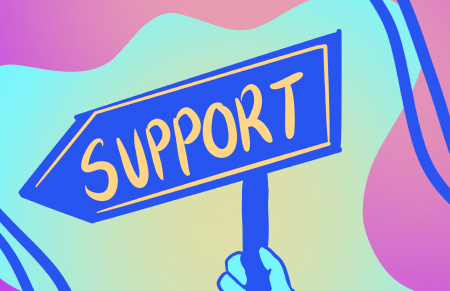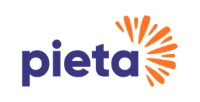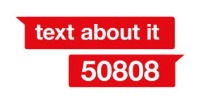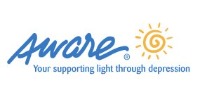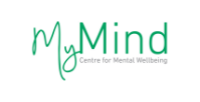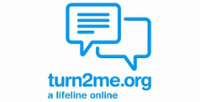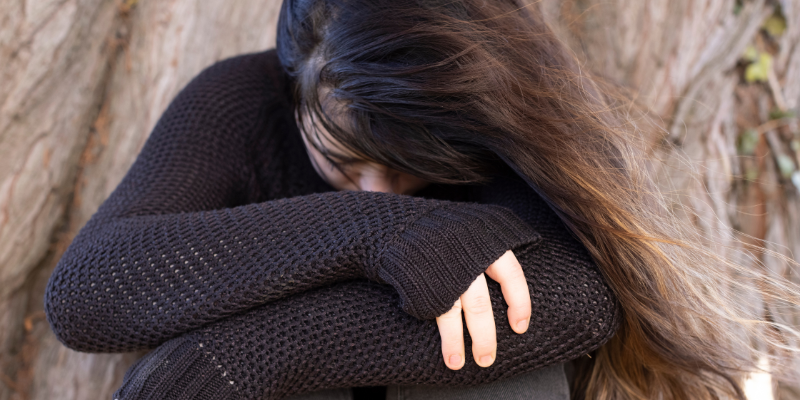
Self Harm or Self Injury occurs when a person deliberately inflicts physical harm on themselves. Cutting, burning, biting, punching objects or oneself, pulling out hair or skin, severely scratching skin or poisoning are just some forms of self harm. It's most often used to cope with pain in the person’s life and can be a temporary activity, a reaction to a particular stress. But it can also be prolonged, becoming a compulsion over an extended period of time.
Why do people Self-Harm?
Self harm is not necessarily a suicide attempt and engaging in self-harm does not automatically mean that the person wishes to die. Many people who self-harm also have suicidal thoughts, but most feel there is a difference between suicidal acts
and acts of self-harm e.g.
“I didn’t want to kill myself, I just needed to get rid of terrible feelings”
For some people, self-harm is part of their everyday life. It may involve a lot of ritual. Some may feel addicted to this behaviour. For others, it’s very occasional, done only when under particular stress.
Everyone’s experience is unique. And although there are many reasons why people choose to self-harm, often it is used to manage moods or feelings, to fit in with negative beliefs or thoughts. The person self-harms as a way to cope with the pain or strong feelings associated with negative experiences or situations. They have the urge to hurt themselves as a way of controlling this feeling of pain.
There can be all sorts of reasons that lead a person to self-harm. It could be financial, relationship, sexual identity or family problems, bereavement or reaction to another traumatic event, school or peer groups. It may be a reaction to bullying, abuse, serious illness or disability or anything that affects self-esteem. It can start in early adolescence when emotions are heightened, but it can also start later in life. It can be related to depression, low self-esteem or self-hatred and is often associated with a sense of guilt or a tendency to isolate oneself from others.
Although it's a very private, often secretive behaviour, it can also be a means to communicate. In our Self Help Guide to Self-Harm, we explore this in more details but some common reasons for self-harming are to:
- Manage or escape from difficult or hidden feelings
- Relieve pent up tensions, pressure or anger
- Feel something
- Feel in control
- Bring an immediate but temporary sense of relief
- Punish yourself because you feel bad, worthless, guilty or to punish others
- Cope with others expectations
- To prevent suicidal impulses
- To feel part of a group or have an identity
- Communicate a need for support and let others know how bad things are
Need Help? For yourself or for another person?
Self harm is more common than you might think and there are steps to take to manage self-harm, to learn distractions and alternative coping methods. Follow the links below to Get Help if you're self-harming, to Give Help if you are concerned for someone else or to access supports.
3Ts Video Library
Our 3Ts video library contains a series of short videos which aim to provide practical help on a broad range of mental health issues, from stress and anxiety to self-harm, depression and more. We've handpicked a small selection that are particularly relevant for if you self harm yourself or are concerned for someone else. The videos aim to help understand and demystify self-harm. Understanding is the first step. Check out other titles in our 3Ts Video Library here.
A PSYCHOTHERAPIST EXPLAINS
UNDERSTANDING SELF HARM
HOW TO GET HELP
HOW TO GIVE HELP
Access Support Services
We should never be afraid to ask for the help that we deserve. Reach out to someone you trust or consider calling a helpline if you feel in crisis Talking through concerns with someone who understands can be very reassuring and can help in learning new coping skills. It’s good to know you’re not alone and that other people have felt the same as you do but have got through it.
Free 24 Hour Support service with therapeutic approach for people in suicidal distress, who engage in self-harm, are particularly low or who are bereaved by suicide. See website for branches.
- Freephone 24 hour Helpline: 1800 247 247
- Text HELP to 51444
- Call to book a therapy appoinment: 0818 111 126
- Web: pieta.ie
Text About It is a confidential text messaging support service that provides immediate support for anyone going through a mental health or emotional crisis – big or small. Crisis volunteers are available 24/7 for anonymous text conversations and the service is free across all networks. Text About It is ideal if you rather text than speak to someone face to face or by phone. If the short code doesn't work on your network (An Post/48), you can still use the service by texting HELLO to 0861800280. Standard network message rates may apply to this 086 number.
- Available every day 24 hours a day.
- Text About It is a free 24/7 text service. Text HELLO to 50808 to begin your conversation or text HELLO to 0861800280.
- Service is Free on Whats App.
- Standard message rates apply to 086 1800280 number only.
- Website: textaboutit.ie
Longstanding & trusted, Samaritans volunteers provide confidential support, befriending and listening to those in personal crisis, 24 hours a day, 365 days a year. 21 branches across Ireland. Also provide a Self-Help App. to keep track of feelings, get coping recommendations & to stay safe in a crisis.
- Helpline: Freephone 116 123 (callers from Rep of Ireland & N Ireland)
- Email: jo@samaritans.ie (Rep. of Ire) jo@samaritans.org (N Ire) email response issues within 24 hours)
- Web: samaritans.org
Providing online, telephone & face to face support and assistance to all affected by depression & bipolar disorder. Phone-in and Zoom peer groups provide support for anxiety, mild to moderate depression, bipolar disorder or other related mood conditions. Support & self-care groups take place daily.
- Support Line Helpline (Freephone): 1800 80 48 48 (10am-10pm daily)
- Email: supportmail@aware.ie (expect response within 24 hours or often sooner)
- Web: aware.ie
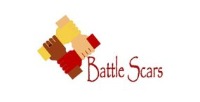
If you need help understanding self-harm, the Battle Scars Website is a very useful place to start. This UK based survivor-led charity provides peer to peer support and training in all areas related to self-harm. However, regardless of where you are, their website is filled with useful insights and practical information, along with a number of online resources such as literature, self-help tools and tools to be used when working with people who self-harm. Battle Scars started as a community group and their Facebook Page @battlescarsselfharm is a moderated support group open also to those outside of the UK. Excellent resource for anyone concerned about self-harm.
- Phone: 00 44 7410 380747 (N.B. This is an Admin telephone number – this is not a support or crisis number)
- Email: info@battle-scars-self-harm.org.uk
- Web: www.battle-scars-self-harm.org.uk
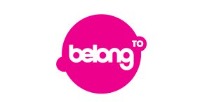
BeLonG To provides support and information for Lesbian, Gay, Bisexual & Trans (LGBTI+) young people in Ireland through a number of support services. If you are LGBTI+ and have questions, worries, or just need to have a chat in a safe space, BeLonG To can provide you with information, support, and a listening ear. BeLonG To support youth groups around the country where you can be yourself, meet new people and seek help. Monday Chats are a free service for 14-23 year-olds between 3-7pm. Book an appointment via the email or telephone number below.
- Email: info@belongto.org
- Helpline: BelonG To / Pieta 01 462 4792 to book free session counselling sessions
- Phone: 01-670 6223 (Mon-Fri, 9am-1pm, 2pm -5pm) – this is not a helpline.
- Web: www.belongto.org

Based in Gorey with a Branch in Arklow, Futures in Mind provides a range of suicide prevention services both locally and nationally for all ages including children & adolescents. Services include counselling, child & adolescent services, bereavement support and community outreach programmes including training. Also provide group sessions such as depression and bereavement support groups.
- Helpline: (0818) 30 30 61
- Email: info@futuresinmind.ie
- Web: futuresinmind.ie
The national centre for youth mental health, Jigsaw has branches in Dublin and across Ireland. Services include access to free therapy and expert mental health support, both online and in person, for children and young adults aged 12-25 years. Jigsaw.ie is a great resource of information & eLearning including support articles, videos and online courses for young people, parents/guardians and those working with young people. Talk to a Jigsaw clinician online through the Jigsaw Live Chat, Ask Jigsaw and Group Chats.
Web: www.jigsaw.ie
Providing fast and easy access to counselling and psychotherapyface to face and online. MyMind work to deliver affordable counselling with a sliding pay scale according to client.
- Email: hq@mymind.org
- Web: www.mymind.org
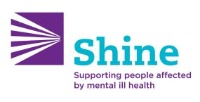
SHINE works with individuals & family members of those with mental health difficulties. They aim to raise awareness and provide information, education, counselling & support groups. Services include groups for people with lived experience of a mental health difficulty, family & supporters groups, recovery training and education groups. Find your local Shine service here.Helpline: 1890 621 631
- Email: Counselling Service phil@shineonline.ie
- Web: shine.ie

Available 7 days a week, 365 days a year, the Switchboard provides support and resources to all areas of the LGBTQIA community and to their families, friends and allies. Services include confidential helpline, married men's group and parents support service. A Drop-In Service is available weekly for sexual health information & support. Email for support or even to volunteer.
- Helpline (weekdays): +353 1 8721055 Mon-Fri 6:30 - 9pm
- Helpline (Sat/Sun & bank holidays): +353 1 5253113 4pm - 6pm
- Drop-in: Saturdays 2-4pm in Outhouse, 105 Capel St, Dublin 1
- Email: ask@theswitchboard.ie
- Web:theswitchboard.ie
Online mental health community providing support groups, peer support and one to one online counselling. Turn2me provide 6 free counselling sessions to anyone over 18 years living in Ireland. Website is a good resource of information on mental health issues. Contact: via form on the website
If you're in need of urgent assistance
- In an emergency, or for injuries that need medical attention, please visit your local A&E or call 999 or 112.
- Call a helpline:
- Samaritans 24/7 on Freephone 116123
- Pieta 24/7 1800 247 247
- Contact Text About It: Text Hello to 50808 for free 24/7 Crisis Text Support
- See above list of specialist support services
- Talk to your GP to find a therapy that suits you.
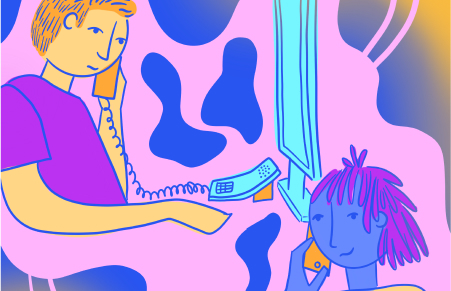
.png?sfvrsn=ccbbd156_0)
